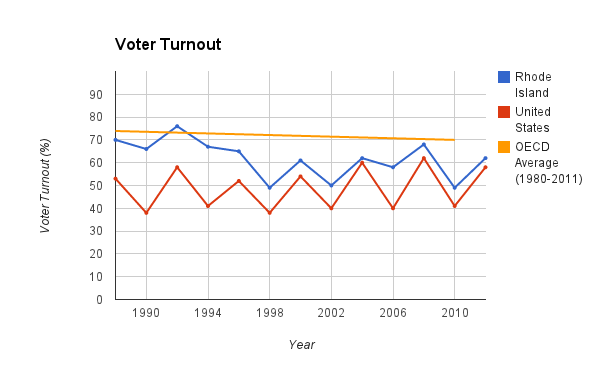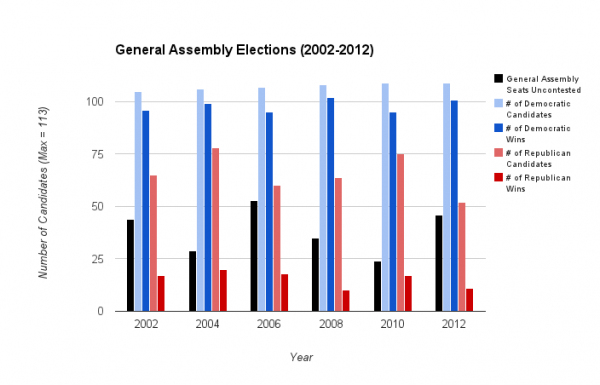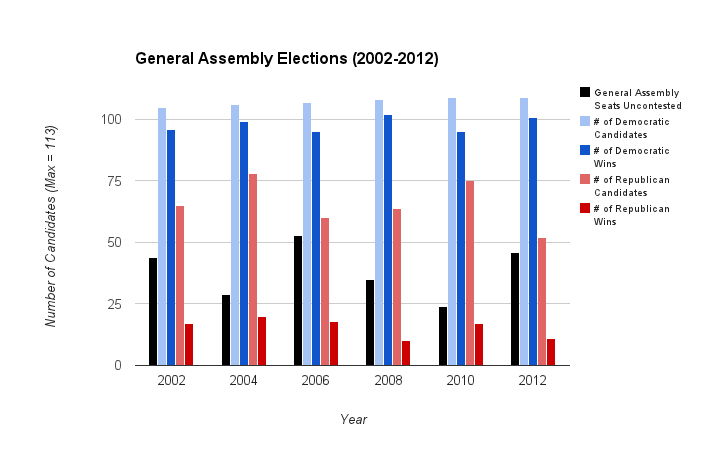Justin Katz is really out in right field with this post. He starts off by making a decent point:
Even if every Rhode Islander disagreed with a person’s policy suggestions, that doesn’t mean that those suggestions are wrong or are not the wisest thing that the state could do, in a particular instance.
That’s right, though too often this can fall into a Jeremiah-wannabe trap, where someone expresses their unpopular opinion, is criticized, and essentially says “just you wait and see.” They can feel vindicated by the criticism, rather than addressing it. Here, Katz is responding to a point (as he perceives it) that the failure of Republican and conservative candidates in the state proves that conservatives are wrong.
I don’t actually think that’s the full argument. I believe the argument is that people generally vote for what they feel is best for them, and that if Republicans were putting forward policy proposals that appealed to the people of Rhode Island, they’d see victory. Anyhow, Katz comforts himself with:
a poll that Bryant University’s Hassenfeld Institute released, this week, finding that 82% of Rhode Islanders would grade their legislators negatively for effectiveness.
That’s not really true; the pollster (Fleming & Associates) finds that 43% of polled Rhode Islanders graded their state elected leaders negatively for effectiveness. 39% said “just fair.” The poll groups those answers together to create the “negative rating” that was widely reported. Except “just fair” might be read as the neutral opinion; weighting the poll in the affirmative (the addition of maybe an “abysmal” option could’ve balanced the poll, as well as given more information on those who chose “poor”). I understand it’s standard to lump the negative and neutral ratings together, but I can’t find a decent explanation as to why it’s done. We also need to consider what constitutes an “elected leader;” is it all elected officials or just legislative leadership and the governor? Finally, the poll sample has double the representation of the elderly as actually live in Rhode Island, which is going to make the results more conservative.
I’m in agreement with Marc Comtois on this, the results of the Hassenfeld Institute poll “really don’t tell us anything new.”
Katz then comes up with this gem:
the poll results only reinforce what could be inferred from the low turnout for elections.
So, this is the sort of opinionated thing that isn’t backed by data. If you look at page 385 (page 383 in the PDF) of the Official RI 2012 Countbook, you can find the eligible voter turnout going back to 1988. Averaged together, that gives us 61.77% for the 13 elections. That’s not high, but it’s far above the average for the United States from the same time period, which is 48.86%. The low point is the 49% turnout in 2010, a year when Democrats were demoralized, both nationally and locally. If you’re into that sort of thing, here’s a chart plotting turnout by year, and against the OECD average (which decayed 11 points from 1980 to the elections held before April 2011).

Katz might feel that turnout is low (and will no doubt point to the recent Woonsocket special election), but that’s not true. It’s consistently higher than the national average, and not appreciably tied to the national mood (it may be tied to the Democratic Party mood). Rhode Island could certainly boost turnout by rolling back voter ID, increasing poll operation hours, redesigning the ballot, instituting robust early voting, and/or instituting compulsory voting; but somehow I don’t see Katz leaping to advocate for any of that. In fact, decreased turnout helps the Republican Party, because Republicans win when Democrats don’t vote (see 2010).
Katz is right that policies aren’t proved correct by election results. But elections are where policies get debated and given mandates. In a given RI general election, anywhere from around a fifth to two-fifths of General Assembly seats aren’t contested; and those that are contested aren’t necessarily contested by a Republican. Suppose we accept two positions: 1) Rhode Islanders are fed up with their state government, and 2) Republicans will be the primary beneficiaries of that discontent (by no means assured). The problem is that Republicans can’t field enough candidates to capitalize on that. Here’s a graph illustrating that problem:

Democrats field roughly the same number candidates each year, leaving around four seats uncontested. The number of Republican candidates leapfrogs wildly, but we can make this rule of thumb: if the Republicans run more candidates they have a greater likelihood of winning more seats. Former Chairman Mark Zaccaria’s strategy of “quality over quantity” was disastrous, especially in a presidential election year. When Republicans don’t run, they can’t win, and cede the General Assembly to Democratic Party by default. Every year they leave votes on the table, votes that could tell them where their support is, what policies they advocate are popular, and what paths might advance their goals. Instead of realizing this, Katz puts the final cherry on top:
The emerging question — which is beginning to cross the threshold from private conversations to public speculation — is whether we’re living under a legitimate representative democracy. It sure does seem as if the public is tuned out and hopeless, sensing that nothing can be changed through civic processes.
Not only is this bullshit, this is dangerous bullshit. This is the kind of rhetoric that seeks to illegitimate elections before they happen. It’s along the lines of the belief in voter fraud that people hold; a federal investigation found three instances of mail ballot procedure violations but no fraud. Because the right can’t win in this state because of a myriad of factors (its own incompetence, the power of incumbency, the unpopularity of its positions, etc.) then surely it must be because the public isn’t listening and/or because the government is illegitimate or somehow rigging the system.
That’s not what’s happening in Rhode Island. The Democratic Party is winning a majority of voters who show up, and the Republicans are losing. Quite possibly this is because the majority of Rhode Islanders are Democrats or Democratic partisans. But the lesson for conservatives like Katz is this: just because you consistently lose elections doesn’t make the rightfully elected government illegitimate.


Deprecated: Function get_magic_quotes_gpc() is deprecated in /hermes/bosnacweb08/bosnacweb08bf/b1577/ipg.rifuturecom/RIFutureNew/wp-includes/formatting.php on line 4387
Deprecated: Function get_magic_quotes_gpc() is deprecated in /hermes/bosnacweb08/bosnacweb08bf/b1577/ipg.rifuturecom/RIFutureNew/wp-includes/formatting.php on line 4387
Deprecated: Function get_magic_quotes_gpc() is deprecated in /hermes/bosnacweb08/bosnacweb08bf/b1577/ipg.rifuturecom/RIFutureNew/wp-includes/formatting.php on line 4387